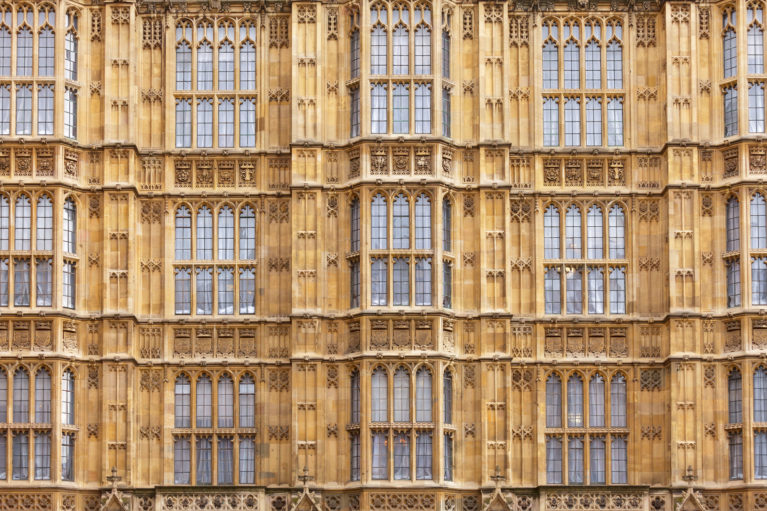Policing
Quick fixes to knife crime would put our rights at risk
Posted by Rosalind Comyn on 29 Mar 2019
Serious youth violence is a human rights issue. It demands an evidence-based, just and coherent response.
The first three months of 2019 have been marked by a torrent of proposals that claim to address it, many of which should concern anyone who thinks civil liberties matter: from the dilution of constraints on suspicionless stop and search and embedding more police in schools, to deployment of armed police patrols or even the Army to our streets.
Only last week, Parliament oversaw the resurrection of ASBO-style powers, known as Knife Crime Prevention Orders, that will enable the criminalisation of children as young as 12 without them actually committing any criminal activity.
Any death of a young person is a tragic event, and the aim must be to find lasting ways of reducing youth violence, but these suggestions share a troubling similarity: they challenge basic precepts of criminal justice and policing, such as the presumption of innocence, equality before the law and respect for civil liberties. They fail to acknowledge what should be a crucial part of the conversation about youth violence – rising race disproportionality in multiple aspects of policing, including stop and search.
A significant intrusion
Stop and search is an interference with a person’s right to a private life. It disrupts your ability to go about your daily life, and permits a significant physical intrusion in a public place.
Communities in the UK are not evenly subject to this intrusion. If you are black, you are now over nine times more likely to be stopped and searched than if you are white. This disproportionality is higher under suspicionless powers including Section 60 – which police are relying on with increasing frequency.
Yet according to Her Majesty’s Inspectorate of Constabulary and Fire & Rescue Services, the body charged with inspecting police forces, the rate at which people are found with prohibited items is similar across all ethnicities.
For young people in the Gangs Matrix – who are labelled as ‘gang nominals’ based on untested evidence that they often do not have the opportunity to see or contest – stop and search can be an intrusion experienced multiple times a day.
Eroding trust
As we highlighted in our submission to the HASC Inquiry into the MacPherson Inquiry 20 years on, the impact of disproportionate stop and search on communities who bear its brunt is deep and enduring.
In 2018, research by Dr Patrick Williams with young people on the Met’s Gangs Matrix found that respondents identified stop and search as “the catalyst for the onset of their negative relationship with the police.”
A year earlier, the Criminal Justice Alliance spoke to young BAME people with first-hand experience of stop and search. They described feeling harassed, targeted, provoked, and even violated by these coercive encounters.
As David Lammy MP pointed out in his 2017 report on the treatment and outcomes for BAME people in the criminal justice system, this drains trust in the whole system. It also undermines public safety by making it harder for the police to work effectively in communities.
Un-evidenced and unaccountable
Ramping up levels of stop and search has been advanced as an essential strategy to combat rising serious violence. However, evidence on whether heightened stop and search achieves this end is limited. Research by the Home Office concluded that previous surges of stop and search had little discernible effect on trends in violent crime, a fact acknowledged by the Government’s Serious Violence Strategy.
While targeted and properly accountable stop and search may form part of the Government’s response to serious violence, it is far from clear that escalating the use of stop and search reduces levels of violence – but it carries heavy costs.
Time for serious reform
In 2014, when Theresa May announced a voluntary scheme to improve stop and search outcomes on the grounds that ‘nobody wins when stop and search is misapplied’, she promised to introduce primary legislation if it failed to deliver the necessary results. With race disproportionality at its highest in over 20 years, it is clear that time has come.
But beyond further reform to stop and search, the conversation needs to move away from ill-considered proposals which risk significant counterproductive outcomes, as well as undermining the civil liberties of every one of us. Crucially, it should include of the voices of the young people and communities most affected by serious violence.
I'm looking for advice on this
Did you know Liberty offers free human rights legal advice?
What are my rights on this?
Find out more about your rights and how the Human Rights Act protects them
Did you find this content useful?
Help us make our content even better by letting us know whether you found this page useful or not

